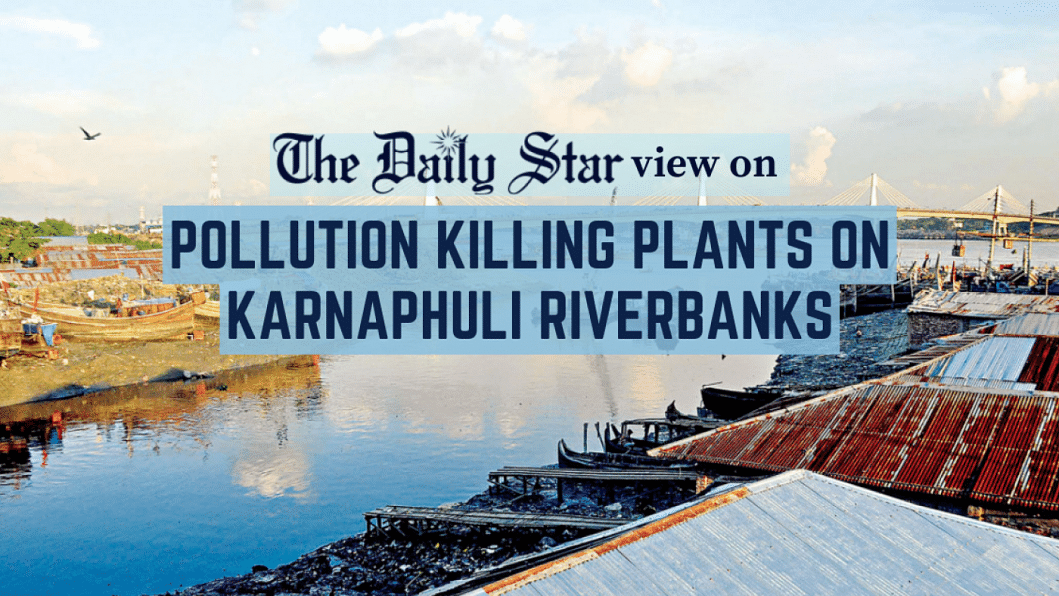Karnaphuli River is being robbed of life, one species at a time

Dumping of toxic waste into rivers has become something of a norm in Bangladesh where there is no accountability for those who do it. But are the authorities aware of the long-term effects of their lax monitoring which is allowing this indiscriminate pollution of rivers? A research team from Chattogram University, in collaboration with a local environmental organisation, has recently revealed that as many as 81 species of plants on the banks of Karnaphuli River are in danger of going extinct over the next few decades. Another 61 species of plants, as per their study, are at risk of becoming endangered if no action is taken to prevent pollution. Moreover, researchers have found that the movement of dolphins in the river is also being disrupted.
If these revelations are not disturbing enough, know that 35 out of 140 species of fish are no longer present in the river because of its continued pollution, as per a report by the Department of Environment (DoE) in Chattogram. This is the state of just one river in one region. Imagine the state of other rivers going through the same ordeal.
Perhaps the most well-known victims of industrial pollution and encroachment are Dhaka's rivers. The level of mismanagement that these waterbodies have been put through boggles the mind. In many places, demarcation pillars, installed along the banks to signal their boundaries, have been turned into relics due to unabated encroachment. In many areas, fish and other aquatic animals have been driven away by the contamination from disposal of untreated waste. Across the country, a number of rivers and canals have disappeared thanks to pollution and encroachment. There is no shortage of examples to illustrate the woeful state of our rivers. How can they – and we, being dependent on them – survive if industries, individuals and even government agencies are allowed to suffocate them like this?
Unfortunately, all this is going on despite the authorities having enough information to stop the encroachers and polluters. In 2018-19, the National River Conservation Commission made a list of 57,390 encroachers in all 64 districts – of them, only 32 percent were reportedly evicted so far. In Chattogram, the district administration has a list of 2,112 grabbers along a 40km stretch of the Karnaphuli river. But the relevant authorities have repeatedly failed to comply with court directives to remove illegal structures. Meanwhile, these encroachers – among them politically linked individuals and industrial units – continue to pollute the river and kill its ecosystem.
We urge the higher authorities to crack down on those slowly killing our rivers. For too long, responsible government agencies have either done too little or conveniently shifted their responsibility onto others, which cannot be tolerated any longer. It is high time the authorities, including local administrations and agencies responsible for river protection, undertook serious efforts to stop pollution and encroachment of rivers. We must save them for our own sake.

 For all latest news, follow The Daily Star's Google News channel.
For all latest news, follow The Daily Star's Google News channel. 







Comments